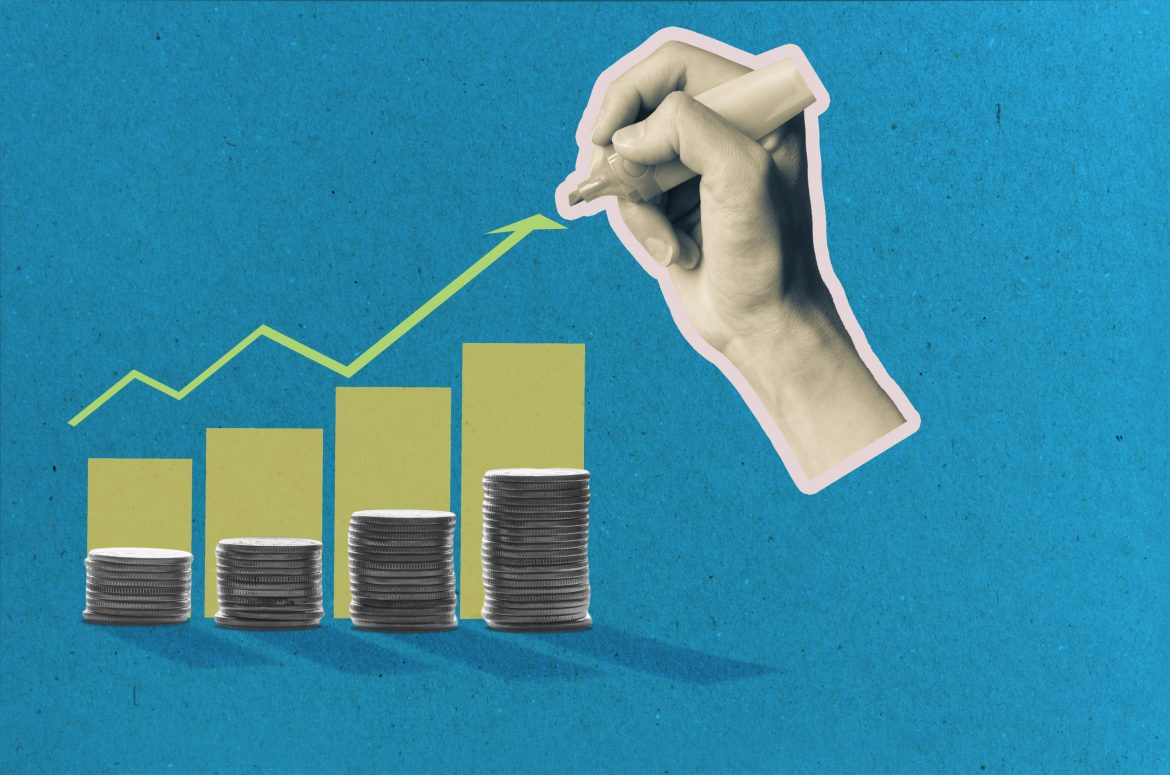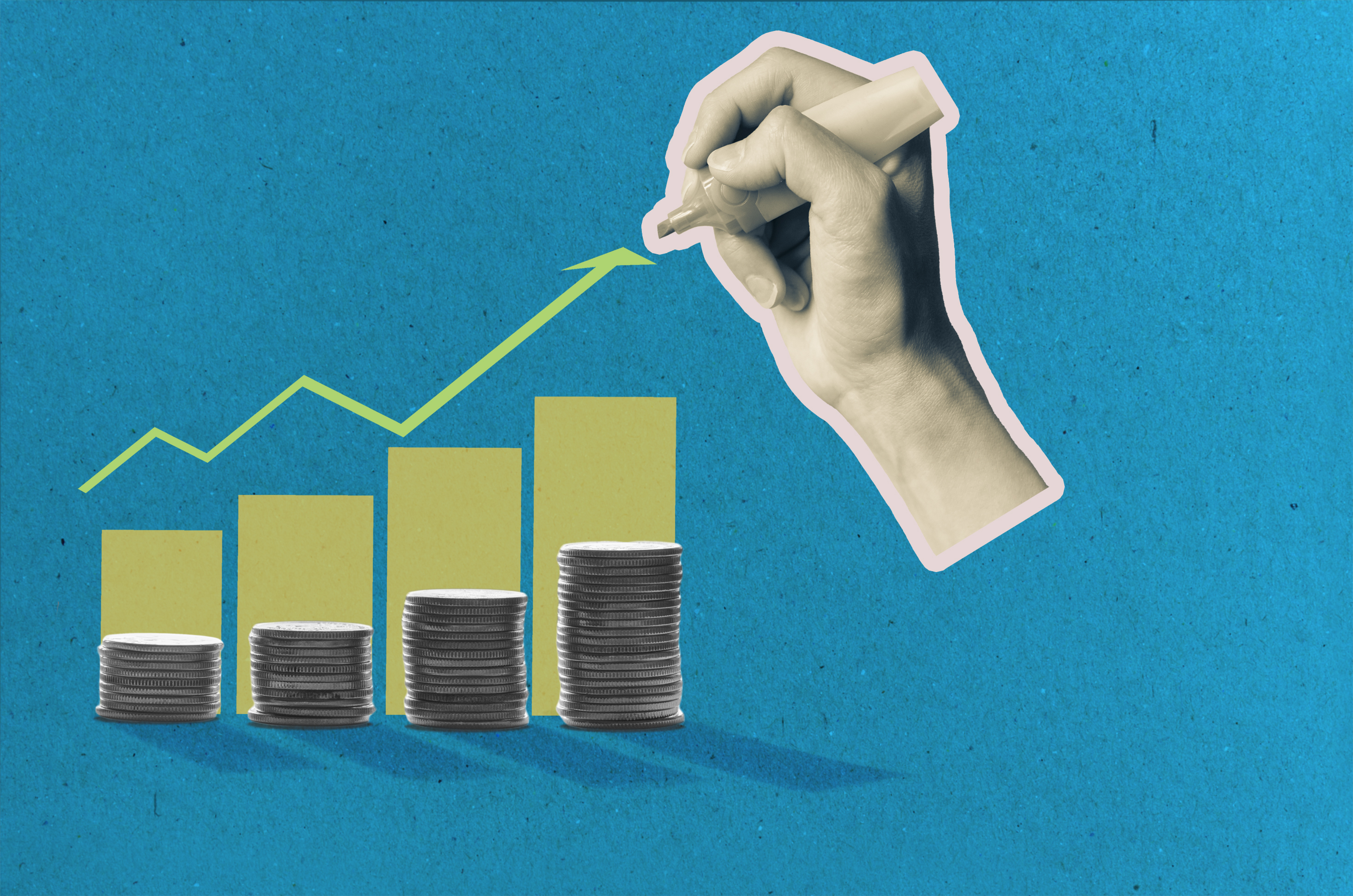
The ups and downs you feel about how quickly or slowly you are getting ahead are not imaginary, but if you are waiting for some magic, government, pixie dust, for a boost out of a downturn well… In this podcast, Ray Zinn ponders the question, should you be relying on the government or yourself for your prosperity?
Rob Artigo: Well, there is this term floating around lately called Unleash Prosperity. There are actually these committees, these nonprofit groups that have popped up to go around and promote Unleash Prosperity. I think it’s really just a money generating scheme in many cases, but they call it Unleash Prosperity, and it sounds really positive and optimistic, and the idea is how to help the government make you prosperous. Give me an idea what you think about this. I know you wrote a little bit about it, so give me some thoughts.
Ray Zinn: Unleashing prosperity is really something you have to do for yourself, otherwise you’re relying on the government to help you become prosperous. So again, the focus should be unleashing your prosperity, not unleashing prosperity kind of “general prosperity.” If we’re going to be successful, we have to take control of our own prosperity.
Rob Artigo: Well, you put together a little list here, just a really short one of some of the basic rules you can follow if really what you’re after is unleashing your prosperity, so that you’re doing it yourself and not relying on the government, because it could take a gazillion years for something to trickle down to you through the government, but you need to take action now in unleashing your prosperity.
So the first one here, Ray, is most economic cycles last about three to five years. So calendar, the beginning of each cycle and get prepared for one and a half to two years or one to two years in advance. That make sense?
Ray Zinn: An economic cycle does last about three to five years, whether it be a downturn or an upturn. So what you need to do, ’cause it’s going to happen, is sure as leaves fall from the tree during fall, you’re going to get an economic downturn or an economic upturn. So each cycle, and there’s a whole host of reasons why we have economic cycles, because it’s just like what we call the ups and downs of life. Flipping a coin, there’s a 50/50 chance you’re a head or 50/50 chance you have a tail.
Good times don’t last forever and bad times won’t last forever, and that’s called what we refer to as Newton’s First Law of Economics. Again, Dr. Newton, he’s the one that says for every action you have one direction, you have an equal and opposite in the other, and so that’s what we talk about in Newton’s First Law of Economics. For every upturn, you have a downturn, otherwise you wouldn’t have a cycle.
So a cycle is kind of like a sinusoidal wave in a circuit, there’s going to be a peak and then there’s going to be a valley. That’s when we talk about a cycle is that from peak to trough is usually three to five years. What we want to do is get prepared for that, and to get prepared for it look one to two years ahead. So in other words, when you see an economic cycle peak or bottom, depending upon which side we’re talking about, get ready.
If we’re at the top of the cycle, we can see that in one to two years we’re going to be in the bottom. In other words, we’re going to be in a bad side. So when you have the money, when you have the peak of the cycle, don’t believe the trees grow all the way to heaven, otherwise they’re not going to last forever. So save some money, get ready for it and get ready in advance, and the same thing with the bottom.
When the bottom hits, be ready for it, ’cause there’s going to be an upturn, so you want to get ready for the peak of the cycle or the bottom of the cycle. So, knowing that they last three to five years will help you actually increase your prosperity. That’s what that first bullet meant.
Rob Artigo: Well, number two says, and this is obviously how you would imagine in that three to five year cycle, is to have cash reserves of at least 15% of your average living expenses as a buffer during those times when it dips.
Ray Zinn: Yeah, so if you think about the peak and trough of a cycle, it’s usually about a 15%. Meaning you’re going to have increase in expenses during an upcycle and 15% decrease in the bottom of the cycle, so get ready for it. By doing it, you’ll have that buffer that you put it in savings when things are good. They say when there’s a good harvest, reap the harvest, okay? So don’t just spend it, reap it, put it in storage, put it in a savings account or put it in an investment that’ll help you when the cycle reverses and it goes into bad times. So it’s very important to have that buffer, and so we’ll call it the zen buffer. You want that zen buffer to hold you over when the cycle goes down.
I recently read an article that said during this past year that the debt index for consumers has gone up dramatically, like gone up almost 15%, the actual what we call the debt index. We’re piling on debt. Debt’s expensive, because you have to pay interest on it, and so debt never sleeps. Every minute you’re in bed sleeping, your debt’s still increasing because of interest. So get ready, get that 15% buffer stashed away. If you can do more, do more, but you want a minimum of 15%.
Rob Artigo: Yeah, and if you have that 15%, and then if you don’t have that debt overhead where you’re servicing with the high interest rates right now, that 15% in savings could be earning you interest. So somebody’s paying you interest instead of you paying interest, and that is a guaranteed net positive. Debt will never help you out in the long run, because you just end up paying somebody else when you should be the one getting paid. Number three here. During an economic downturn limit your expenses primarily to necessities.
Ray Zinn: The reason the debt index has gone up so high is ’cause people, because unemployment was down or low, they thought things were good times, but inflation’s high and things cost more, and so you’re buying things at a very costly time. So, what you want to do is make sure you only spend your money on necessities. This is during a down cycle now we’re referring to.
So in a downturn, don’t go out and just buy these discretionary items like cars and vacation homes or trips or whatever, expensive appliances. Don’t spend your money on non-unnecessary items. That’s the worst time for you to do it, because your credit card debt’s going to go up, your interest rate’s going to pile on, and you’re going to be in a bankrupt situation when this bottom hits on the recession.
Now, they’re talking about a soft landing in 2024. I don’t know what a soft landing is. I mean, does it mean that you don’t die when you hit the ground? I mean, soft landing is relative. I mean, I don’t know how soft your bones can take the hit, as you would. I’m not sure any kind of landing is a good landing unless you got a lot of strength. In other words, if you’re just jumping off of a seven-foot step, maybe unless you got some serious bone problem, you can easily withstand a seven-inch step when you jump off of it.
But realize that soft landing is a relative term and 2024 is not going to be as good as 2023, and for a lot of reasons. Number one, the interest rate I don’t believe is going to come down to below 3% down in a one and a half to two. I don’t believe that’s going to happen for another two, three years, so you’re going to be talking interest rates, they’re going to be north of 3%, 3.5%. Even if the Fed begins to drop them 25 basis points per quarter, it will take a while to get that interest rate down to below 2%. You really can’t tolerate interest rates much above 3.5%, 4%, ’cause that’s just going to eat right into your equity, into your balance sheet, so be careful.
Rob Artigo: Yeah, and then bottom line is, I think number four makes sense all the way across the board, whether good times or bad times, economically the idea is to be frugal.
Ray Zinn: Live within your means, that’s what that one is. Live within your means. Do not borrow, borrowing is bad. Maybe you have to borrow to buy a house, maybe a car, but that’s it. Borrowing on anything else besides a house or a car is ridiculous, even student debt. I tell my grandkids, I’m helping them financially to degree I can, and I tell them, “Don’t take on debt. Do not take on debt, debt is the worst thing.”
I know the banks don’t like me to say that, but I will tell you, debt is as bad as it gets. It’s ugly. If you can think of the worst stomach ache you’ve ever had or the worst flu you’ve ever had, just think of debt as that. Debt is your worst nightmare. Do not go into debt, except maybe for a home or maybe a car, but that’s it. Not two cars, not three cars, not a better refrigerator, not a better washer, dryer or whatever, or vacation. Forget it. Do not go into debt. If you have the money, that’s different, but using your credit card is just really the kiss of death. So, you heard it from me. I’m telling you, I promise you debt will eat you alive.
Rob Artigo: Yeah, and even in the best terms for a credit card, you’re paying over 15%, you’re probably paying more like 18.5%, close to 19% or 20%. Like you said, once you get that up to a few thousand bucks, you’re just chasing your tail and going to be hating it.
Anyway, join the conversation at toughthingsfirst.com. Your questions and comments always welcome. Follow Ray Zinn on X, Facebook, at LinkedIn, and of course Ray’s Books, Tough Things First, the big original book, and Zen of Zinn one, two, and three. Check out the books. Thanks again, Ray.
Ray Zinn: Thank you, Rob.


